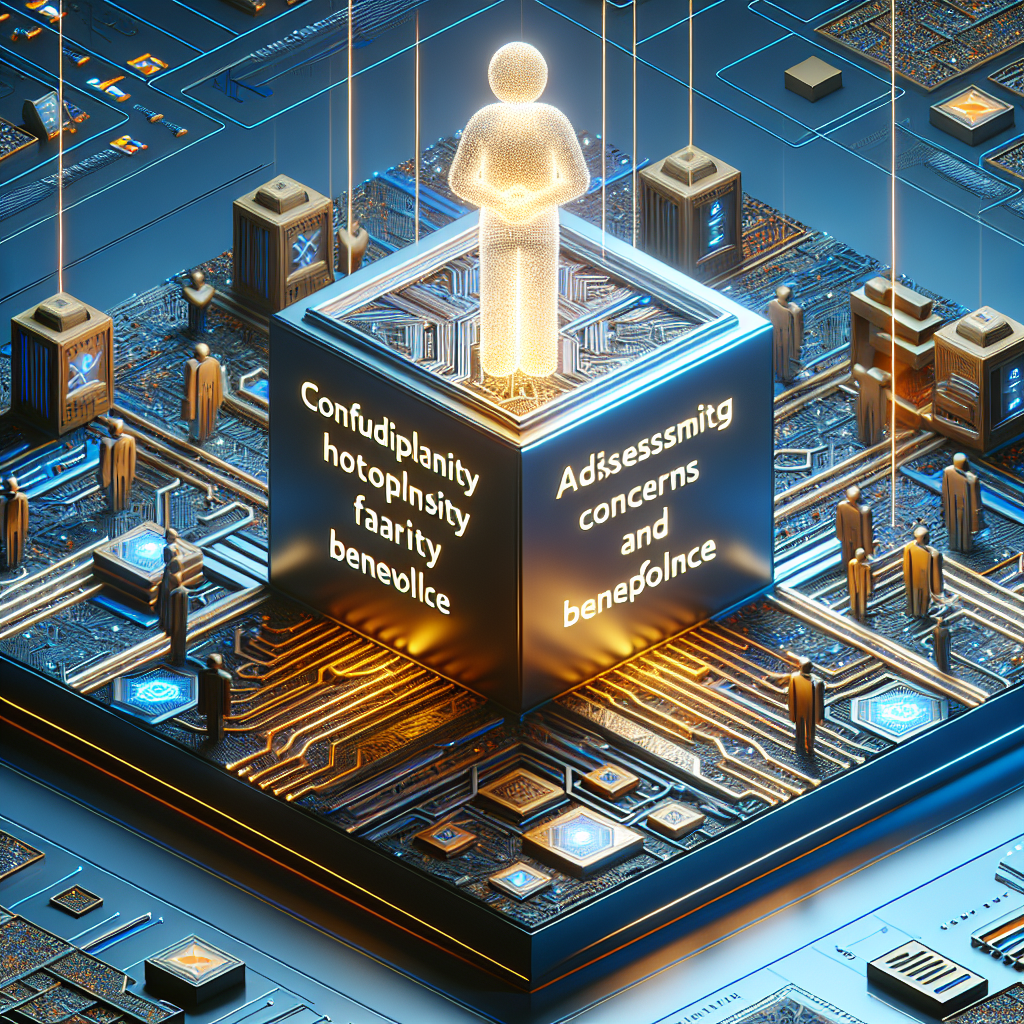The Ethics of AGI: Addressing Concerns and Building Trust
Artificial General Intelligence (AGI) is a term that refers to a hypothetical form of artificial intelligence that can perform any intellectual task that a human can. While current AI systems are limited to specific tasks, AGI would have the ability to understand and learn any intellectual task, making it potentially more powerful than human intelligence in many ways.
The development of AGI has the potential to revolutionize many aspects of society, from healthcare to transportation to education. However, there are also significant ethical concerns associated with the development and deployment of AGI. In this article, we will explore some of the key ethical considerations surrounding AGI, as well as strategies for addressing these concerns and building trust in AGI technology.
Ethical Concerns
One of the primary ethical concerns surrounding AGI is the potential for the technology to be misused or abused. AGI systems could be used to manipulate or deceive people, infringe on privacy rights, or even cause harm to individuals or society as a whole. For example, AGI systems could be used to create fake news or propaganda, manipulate financial markets, or develop autonomous weapons systems that could be used in warfare.
Another concern is the potential for AGI systems to perpetuate or even exacerbate existing biases and inequalities in society. If AGI systems are trained on biased data, they could perpetuate and amplify those biases in their decision-making processes. This could lead to discrimination against certain groups of people or reinforce existing social inequalities.
There are also concerns about the impact of AGI on the future of work. As AGI systems become more capable of performing a wide range of tasks, there is the potential for widespread job displacement and economic disruption. This could lead to increased inequality and social unrest, as well as challenges in retraining workers for new roles in a rapidly changing economy.
Addressing Concerns
To address these ethical concerns, it is essential that developers and policymakers take a proactive approach to the development and deployment of AGI technology. This includes implementing robust ethical guidelines and standards for the design and use of AGI systems, as well as ensuring transparency and accountability in the development process.
One key strategy for addressing ethical concerns surrounding AGI is to prioritize the development of AI systems that are aligned with human values and goals. This includes ensuring that AGI systems are designed to prioritize the well-being and safety of individuals and society, rather than maximizing efficiency or profit at any cost.
Another important consideration is the need for transparency and explainability in AGI systems. It is essential that developers are able to understand and explain how AGI systems make decisions, in order to identify and correct biases or errors in the system. This can help to build trust in AGI technology and ensure that it is used responsibly.
Building Trust
Building trust in AGI technology is essential for its successful deployment and integration into society. This requires engaging with a wide range of stakeholders, including policymakers, industry experts, and members of the public, to ensure that AGI systems are developed and deployed in a way that aligns with ethical values and societal goals.
One key strategy for building trust in AGI technology is to involve stakeholders in the development process from the outset. This includes engaging with experts in ethics, law, and social sciences, as well as representatives from diverse communities and interest groups, to ensure that the concerns and perspectives of all stakeholders are taken into account.
Another important consideration is the need for transparency and openness in the development and deployment of AGI systems. This includes sharing information about how AGI systems are designed and trained, as well as providing opportunities for external review and oversight of the technology. This can help to build trust in AGI technology and ensure that it is used responsibly and ethically.
FAQs
Q: What are the potential benefits of AGI technology?
A: AGI technology has the potential to revolutionize many aspects of society, from healthcare to transportation to education. AGI systems could help to improve efficiency and productivity in a wide range of industries, as well as enable new innovations and discoveries in science and technology.
Q: How can we ensure that AGI technology is developed and deployed responsibly?
A: To ensure that AGI technology is developed and deployed responsibly, it is essential to implement robust ethical guidelines and standards for the design and use of AGI systems. This includes prioritizing human values and goals in the development process, as well as ensuring transparency and accountability in the use of AGI technology.
Q: What are the main ethical concerns surrounding AGI technology?
A: Some of the main ethical concerns surrounding AGI technology include the potential for misuse or abuse of the technology, the perpetuation of biases and inequalities in society, and the impact on the future of work. It is essential to address these concerns through proactive and transparent approaches to the development and deployment of AGI technology.
In conclusion, the development of AGI technology has the potential to bring about significant benefits and advancements in society. However, it is essential that ethical concerns surrounding AGI are addressed and that trust is built in the technology through transparent and accountable development processes. By prioritizing human values and goals, engaging with stakeholders, and ensuring transparency and explainability in AGI systems, we can work towards a future where AGI technology is used responsibly and ethically for the benefit of all.

